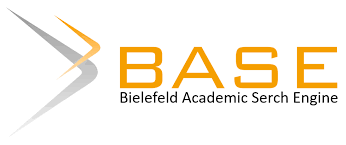The Effect of Word Mapping Strategy in Teaching Vocabulary for Class VI Students of SD Negeri 18 Bengkulu City
Abstract
Full Text:
PDFReferences
Alizadeh, I. (2016). Vocabulary Teaching Techniques: A Review of Common. Practices. International Journal of Research in English Education, 1(1), 22–30.
Allen, (1999) Techniques in Teaching Vocabulary (New York: Oxford University Press, 1999).
Alqahtani, M. (2015). The Importance of Vocabulary in Language Learning and How to be Taught. International Journal of Teaching and Education, 3(3), 21–34.
Antonacci, patricia A. Et all. (2012). Promoting Literacy Development: 50 Research-Based Strategies for K-8 Learners. California: Sage Publications.
Bimas Reskiawan, Netty Huzniati Andas, and Hajra Hajra. (2020). A Study on Students’ Difficulties in Vocabulary Mastery at First Grade Students of SMPN1 Baula. Tamaddun 19(1). 34-54, https://doi.org/10.33096/tamaddun.v19i1.74.
Busran. (2009). Teaching Vocabulary Through Morphological Analysis at the Elementary Class of New Generation Club (NGC) Makassar. UIN Alauddin Makassar.
Cameron, L. (2001). Teaching Languages to Young Learners. Cambridge: Cambridge University Press.
Clouston, M. L. (2013). Teaching Vocabulary. Teasol International Association.
Creswell, J. W. (2009). Research Design: Qualitative, Quantitative, and Mixed Methods Approaches (3rd edition). Los Angeles: SAGE Publications, Inc.
Creswell, J. W. (2012). Educational Research: Planning, Conducting, and Evaluating Quantitative and Qualitative Research (4th ed). Boston: Pearson.
David Hopkins. (2008). Teachers' Guide to Classroom Research. Buckingham: Open University Press.
Easterbrook, R. M. (2013). The Process of Vocabulary Learning: Vocabulary Learning Strategies and Beliefs about Language and Language Learning. Cambridge University Press.
Ghozali, Imam. (2011). Aplikasi Analisis Multivariate Dengan Program SPSS. Semarang: Badan Penerbit Universitas Diponegoro.
Graves, M. (2008). What Research Has to Say About Vocabulary Instruction. Newark: International Reading Association.
Grave (2008). Word Mapping Strategy. http://definition wordmapping/ /english teaching.html. Retrieved on October 18th, 2024
Harmer, J. (2007). The Practice of English Language Teaching. London: Longman.
Harris, M. L., Schumaker, J. B., & Deshler, D. D. (2008). The Word Mapping Strategy: Instructor’s Manual. Lawrence, KS: Edge Enterprises, Inc.
Harmer, J. (2007). How to Teach English. Pearson Education Limited
Haspelmath, M. (2001). Word Classes and Parts of Speech. Elsevier Science Ltd.
Humairoh, S., & Amin, T. S. (2023). The Effect of Using the Show and Tell (S&T) Method on Students' English Vocabulary Mastery at SMP Al-Washliyah 24 Medan. Jurnal Inovasi Penelitian, 4(4), 913-918.
Idham. (2011). Assessing Vocabulary. Cambridge: Cambridge University Press.
John W. Best and James V. Kahn. (2006). Research in Education. Tenth Edition. USA: Pearson Education Inc.
Karendra, R., Nurweni, A., & Suka, R. G. (2017). The Implementation of Word Mapping Strategy to Increase Students’ Vocabulary Mastery at the First Grade Students of SMA N 1 Rumbia Lampung Tengah. Universitas Lampung.
LM, Hediza Haras, Y. Gatot Sutapa, and Endang Susilowati. (2016). The Use of Word Mapping Technique In Teaching Vocabulary." Jurnal Pendidikan dan Pembelajaran Khatulistiwa (JPPK) 5.10
Lock, R. H., Swanson, E. A., & Howerton, D. (2007). Influence Vocabulary Acquisition for English Language Learners. Intervention in School and Clinic, 42(5), 290–294.
Marianca, J. S., Liando, N. V., & Mamentu, A. C. (2022). Improving vocabulary through the word mapping strategy at SMP Negeri 6 Tondano. Jotell: Journal of Teaching English, Linguistics, and Literature, 1(8), 897-911.
McCarten, J. (2007). Teaching Vocabulary. Cambridge University Press.
McCarthy, M. (1990). Vocabulary. Oxford: Oxford University Press
Nakhalah, D. A. M. M. Al. (2016). Problems and Difficulties of Speaking That English Language Students at Al Quds Open University. International Journal of Humanities and Social Science Invention, 5(12), 96–101.
Penton, R., Glenn, J., & English, C. (2004). Effective Literacy Strategy in Years 9 to 13: A Guide for Teachers. Ministry of Education.
Richards, J.C., and Renandya, W.A. (2002). Methodology in Language Teaching: An Ontology of Current Practice. Cambridge: Cambridge University Press.
Robinson, S., Neergaard, H., Tanggaard, L., & Krueger, N. (2016). New Horizons in Entrepreneurship Education: From Teacher-Led to Student-Centered Learning. Education+Training, 58(7/8), 661–683.
Ronaghi, A., Bayat, A., & Mahmoodi, K. (2015). The Effects of the Word-Map Technique on Iranian EFL Learners’ Vocabulary Acquisition: A Response to Help-Seeking Strategy (A Study in Azad University, Malayer, Iran). International Journal of Educational Investigations, 2(8), 1–9.
Rosa, K. D. & Eskenazi, M. (2011). Effect of word complexity on L2 vocabulary learning. In Proceedings of the 6th Workshop on Innovative Use of NLP for Building Educational Applications, 76–80.
Sari, L. I., & Sutopo, D. (2018). The Effectiveness of Vocabulary Self-Collection and Word Mapping Strategies for Teaching Vocabulary to Maritime Cadets With High and Low Metacognitive Awareness. English Education Journal, 8(1), 35–42.
Setiawan, M. R., & Wiedarti, P. (2020). The effectiveness of the Quizlet application towards students' Motivation in Learning Vocabulary. Studies in English Language and Education, 7(1), 83-95.
Sugiyono. (2014). Statistika untuk Penelitian. Bandung: Alfabeta.
Susanto, A. (2017). The Teaching of Vocabulary: A Perspective. Jurnal Kata: Penelitian Tentang Ilmu Bahasa Dan Sastra, 1(2), 182–191.
Suwartono (2014). Dasar-Dasar Metodologi Penelitian. Yogyakarta : Andi Offset.
Ulfa, A. (2019). The Effect of Word Mapping Strategy on Students’ Vocabulary of First-Grade Students at SMPN 1 Bengkalis. Universitas Islam Riau.
Utami, D. W. (2017). The Effectiveness of Using Word Mapping Strategy in Teaching Vocabulary (An Experimental Study of Seventh Grade Students at SMP Negeri 1 Plupuh Academic Year 2015/2016). Institut Agama Islam Negeri Surakarta.
Wardani, S. I. (2015). Improving Students’ Vocabulary Mastery Using the Word Mapping Strategy. Okara, 1(3), 131-140.
Widyawati. (2016). Investigating the Impact of Word Mapping on the Students’ Vocabulary Achievement and the Students’ Perception at the Junior High School Level. Universitas Lampung.
DOI: http://dx.doi.org/10.29300/jpe.v5i1.7629
Refbacks
- There are currently no refbacks.










Universitas Islam Negeri Fatmawati Sukarno Bengkulu
Jl. Raden Fatah, Kelurahan Pagar Dewa Kota Bengkulu 38211
Bengkulu, Indonesia
Telp/fax : (0736) 51276 / (0736) 51171 - 51172
Email : jpe@mail.uinfasbengkulu.ac.id


